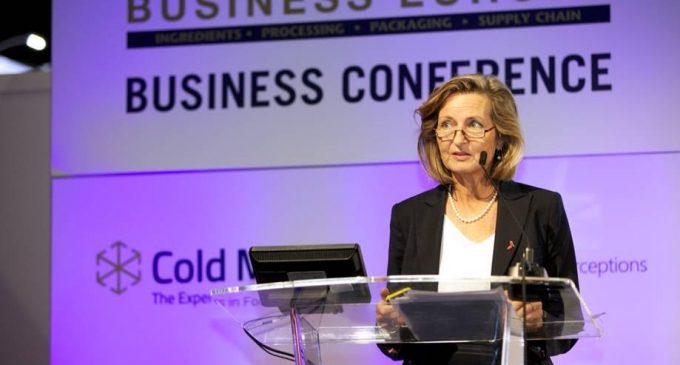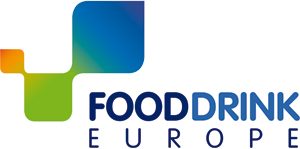Much ‘Brexit’ Fatigue in Brussels

“There is a lot of ‘Brexit’ fatigue in Brussels, which is a pity because it is such an important issue,” according to Mella Frewen (pictured above), Director General of Brussels-based Food, Drink Europe, which represents Europe’s largest manufacturing industry. Mella Frewen was addressing the 4th National Food & Drink Business Conference and Exhibition held recently in Dublin. Her presentation was entitled: ‘The European Food sector in the light of Brexit: key challenges’.
The food and drink industry is the largest manufacturing sector in the European Union. Both larger and smaller companies operate with very integrated supply (and manufacturing) chains across borders, in order to benefit fully from the Single Market. Brexit will therefore have an enormous impact not only on the industry itself, but also all along the food chain.
 In terms of food and drink, the UK has a huge dependence upon trade with the EU 27, with wine being the most important import. The EU mostly imports spirits from the UK.
In terms of food and drink, the UK has a huge dependence upon trade with the EU 27, with wine being the most important import. The EU mostly imports spirits from the UK.
The extent of the Brexit impact will depend upon the type of deal made. The various alternatives range from the UK retaining access to the Single Market and Customs Union; to adopting trading models similar to those used by Norway, Switzerland and Turkey; to a ‘hard’ Brexit entailing the adoption of WTO trading rules and tariffs.
A ‘hard’ Brexit is by far the most costly option for food and drink businesses and could have a “frightening impact on jobs.” Sectors particularly exposed would be French cheese, Irish cheese, Irish beef and Italian pasta.
 Over 4 million trucks cross the Channel every year – equivalent to 14,000 a day. “Where will the trucks go if there is no Customs Union?” She continued: “There are over 2,000 EU laws affecting agrifood. Regulatory divergence would be an important barrier to trade.”
Over 4 million trucks cross the Channel every year – equivalent to 14,000 a day. “Where will the trucks go if there is no Customs Union?” She continued: “There are over 2,000 EU laws affecting agrifood. Regulatory divergence would be an important barrier to trade.”
The Director General of Food, Drink Europe added: “Virtually all UK food law comes from the EU. So we need to ensure minimum regulatory divergence.”
Given the complexity of the relationship between the UK and the EU, she expects a transitional period of 2-4 years.
FoodDrinkEurope is working with its members at European and national level to maintain a robust trade and investment relationship and above all, clarity, certainty and predictability for businesses.
“We want negotiators to treat food and drink as a priority. We want to be involved in shaping the transitional period.”Mella Frewen elaborated: “We need dialogue. We need certainty.”
Unfortunately, this is proving difficult to achieve given the ‘Brexit fatigue’ in Brussels. “It is like a nasty divorce with many conspiracy theories,” she said. “If it wasn’t so serious, you would laugh.”

































